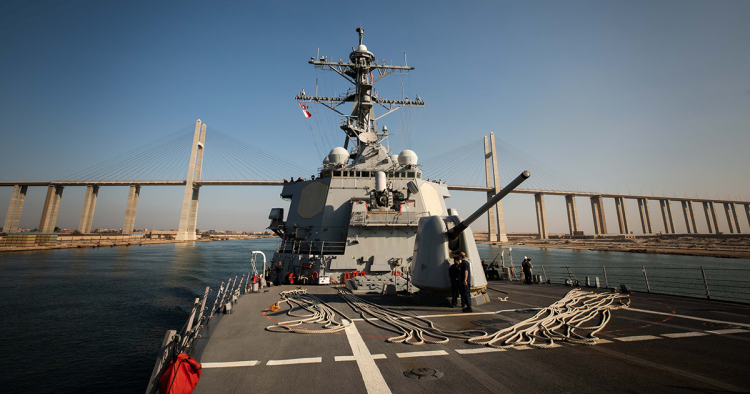As Yemen's Ansarullah movement—better known as the Houthis—steps up attacks on commercial vessels in the Red Sea, Gulf Arab states have opted to stay on the sidelines. They have their reasons for not engaging, including security concerns and the fact that their economies have, to a significant extent, remained shielded from the impact of the strikes. More importantly, these countries are bracing for the more serious economic risks they may face in the future.
Gulf Arab capitals have shown conflicting responses to events in the Red Sea. While Abu Dhabi and Riyadh have remained passive, others, such as Muscat, appear to view the Houthi assaults as a logical response to the unwavering support of western countries for Tel Aviv.
Continue reading on Amwaj.media
U.S. Navy photo by Mass Communication Specialist 2nd Class Aaron Lau
The Middle East Institute (MEI) is an independent, non-partisan, non-for-profit, educational organization. It does not engage in advocacy and its scholars’ opinions are their own. MEI welcomes financial donations, but retains sole editorial control over its work and its publications reflect only the authors’ views. For a listing of MEI donors, please click here.













